This topic is currently marked as "dormant"—the last message is more than 90 days old. You can revive it by posting a reply.
1avatiakh
Nov/Dec
Australia:
Clive James
Nevil Shute
Charlotte Wood
NZ:
Maurice Gee
David Hair
Laurence Fearnley
Back to main thread: http://www.librarything.com/topic/211009
Australia:
Clive James
Nevil Shute
Charlotte Wood
NZ:
Maurice Gee
David Hair
Laurence Fearnley
Back to main thread: http://www.librarything.com/topic/211009
2avatiakh
 _
_ _
_
Maurice Gee (1931 - )
Gee, one of New Zealand’s most distinguished novelists, born in Whakatane, passed much of his childhood in the country town of Henderson (now contained by Auckland’s urban sprawl), and this background plays a major role in his fiction. Again and again his plots are set in Henderson, usually under another name, or other small towns. Even in the most recent, where Wellington and Auckland play a major part, it is their subdivisions — Wadestown, Karori or present-day Henderson —which dominate.
Of special significance is Henderson Creek, where, Gee said, ‘I seem to have spent half my boyhood’. A place of ‘marvellous and terrible things’, it became a source of his ambivalent imagery. There ‘I got my first sight of death. I’d run home from the creek to the safety and security of the kitchen; one the place of safety and affection, the other the place of adventure, danger, excitement. And death’ (New Zealand Books, Aug. 1995). Echoes of Henderson Creek, in various transformations, pervade his fiction.
His mother’s tales of family history were equally important to Gee’s developing sense of storytelling, providing a sense of social history and its implications for families, couples and individuals. His description of his grandfather is immediately recognisable to readers of Plumb: ‘He had an ear trumpet that now and then we were allowed to shout into. He spent his time in the study where there were shelves of books that went up to the ceiling. The years of his ministry were years of dispute and rebellion’ (‘Beginnings’, Islands 17, 1977, an important essay for the grounding of Gee’s fiction in his own and his family’s life).
Each of Gee’s novels bountifully gives us a rich vision of some region and aspect of New Zealand life, and of human life in general. Each is peopled with a variety of intensely living and unique personalities together with lush images of the natural and social worlds. Taken together his books can overwhelm us with their wealth, density and complexity of life. Yet there is always an awareness of living at the edge of an abyss: one false move and we shall leave this abundance for nothingness.
Trevor James has pointed out the frequency of such words as void, abyss, hole, missing, and extends their significance beyond Gee to ‘the tendency toward authoritarian conformity which characterises New Zealand society’, inseparable from the ‘puritanism’ that obsesses many New Zealand writers (London Magazine, 24, 11, 1985). Plumb is many things, including a puritan in the religious, secular, local and international senses of the word, and it is not the least of Gee’s achievements to have taken the traditional struggle with puritanism, a major element in the pattern of New Zealand literature, and enriched it by taking the opponent seriously, showing us the integrity, virtue and vitality of puritanism as well as its destructiveness, authoritarian repression and stultifying conformity.
Maurice Gee’s fiction for younger readers blends exciting stories with serious issues. Told through a range of genres, from fantasy to realism, adventure to science fiction, mysteries, psychological thrillers and gangster stories, they offer a distinctive body of work that shows New Zealand to children and young adults.
He completed BA and MA degrees at the University of Auckland, which subsequently recognised him with a Distinguished Alumni Award in 1998, and an honorary Doctor of Literature in 2004. Gee was the 1992 recipient of the Meridian Energy Katherine Mansfield Memorial Fellowship. In 2002 Maurice was honoured by the NZ Children's Literature Foundation for his contribution to children's fiction and an Arts Foundation Icon Award in 2003. In 2004 he received a Prime Minister’s Award for Literary Achievement. He won the 1978 James Tait Black Memorial Prize for Plumb....among many others.
Fantastic short film clip by NZ Book Council based on the text of Going West: https://www.youtube.com/watch?v=F_jyXJTlrH0
3avatiakh
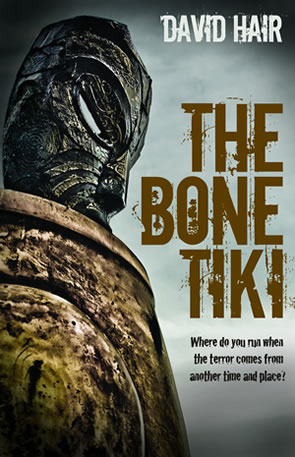 _
_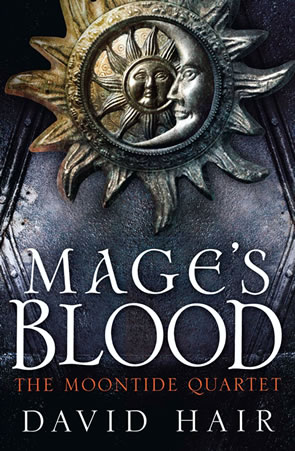 _
_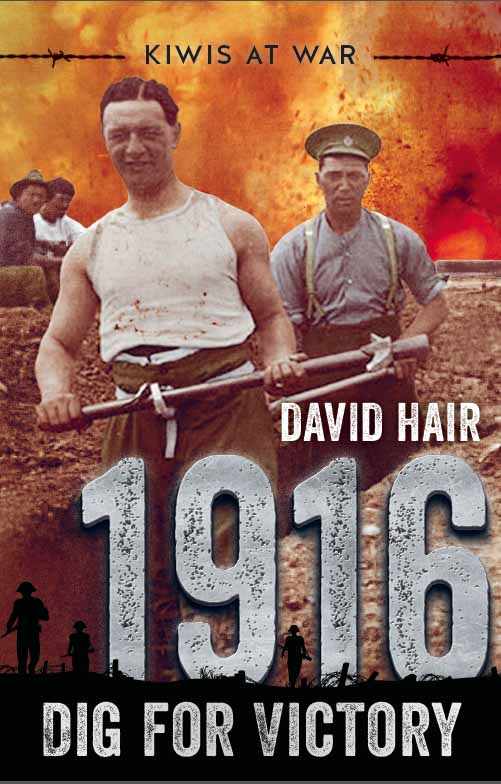
David Hair (1965 -)
David Hair is a New Zealand fantasy writer, Napier-born, currently living in Bangkok. He spent most of his working life in Wellington, in financial services. He became a fulltime writer after the publication of his first novel, while accompanying his wife Kerry on a diplomatic posting to India. David has a BA in Classical Studies and History, and a diploma in financial planning. Travel is an important part of his writing and he has lived in India and the UK, and travelled in Asia, Europe and America.
The Aotearoa Series is a YA series set in New Zealand, featuring: The Bone Tiki (winner of Best First Novel (Young Adult Fiction section) at the 2010 NZ Post Children's Book Awards), and five sequels The Taniwha's Tear, The Lost Tohunga, Justice and Utu, and Ghosts of Parihaka, and Magic and Makutu.
The Return of Ravana is a YA series set in India. Pyre of Queens (winner of the LIANZA Young Adult book award in 2012), Swayamvara (internationally titled The Ghost Bride), Souls in Exile and King of Lanka have been released in India in 2011-12, and later in New Zealand and elsewhere.
A series for the adult fantasy market, The Moontide Quartet, commenced in late 2012 with Moontide 1: Mage’s Blood. Mage's Blood received excellent critical reviews, the remainder of the series continues to receive critical acclaim; Scarlet Tides, and Unholy War, and the concluding volume Ascendant's Rite has been released in November 2015.
http://davidhairauthor.com/
4avatiakh
 _
_ _
_ _
_
Laurence Fearnley (1963-)
Laurence Fearnley is an award-winning novelist. She was born in the Canterbury town of Fairlie. Her parents were English immigrants from Manchester in the 1950s, worried about the threat of nuclear war; they chose the area because they were both keen climbers and skiers. The family later settled in Christchurch, making regular trips to the mountains.
Her novel The Hut Builder won the fiction category of the 2011 NZ Post Book Awards and was shortlisted for the international 2010 Boardman Tasker Prize for mountain writing. Her 2014 novel, Reach, was longlisted for the Ockham New Zealand Book Awards, Edwin and Matilda was runner-up in the 2008 Montana New Zealand Book Awards and her second novel, Room, was shortlisted for the 2001 Montana Book Awards. In 2015, she worked alongside mountaineer Lydia Bradey to write Going Up is Easy, a climbing memoir that was a finalist in the Banff Mountain Literature Award. In 2004 Fearnley was awarded the Artists to Antarctica Fellowship and in 2007 the Robert Burns Fellowship at the University of Otago. Laurence Fearnley lives in Dunedin with her husband and son.
Article in NZ listener: http://www.listener.co.nz/culture/books/fearnley-quiet-spectacular-interview/
5avatiakh
 _
_ _
_ _
_
Clive James (1939 -)
Clive James AO CBE FRSL is an Australian author, critic, broadcaster, poet, translator and memoirist, best known for his autobiographical series Unreliable Memoirs, for his chat shows and documentaries on British television and for his prolific journalism. He has lived and worked in the United Kingdom since 1962.
He was born in Sydney, Australia, and educated at Sydney University and Cambridge University.
James is the author of several collections of poetry, including Opal Sunset: Selected Poems 1958–2008, Angels over Elsinore: Collected Verse 2003–2008, and the satirical verse epic Peregrine Prykke’s Pilgrimage Through the London Literary World: A Tragedy in Heroic Couplets (1974). James’s assured, formal poems range in theme from romantic love to satire, and are composed in a wry voice reminiscent of Philip Larkin’s. Reviewing Opal Sunset, Village Voice critic Abigail Deutsch noted, “James’s artistry lies in his ability to seem both casual and careful: He observes an imperfect world with acerbic off-handedness, often setting his informal voice within formal verse.”
As “The Metropolitan Critic,” James anonymously contributed a regular column to the Times Literary Supplement. His weekly television review column for The Observer, which ran from 1972 to 1982, has been reprinted as On Television (1990). A television performer as well, James has written and presented numerous studio series and specials, including the series “Fame in the Twentieth Century,” which aired on the BBC and PBS. After helping found the television production company Watchmaker, James chaired the Internet enterprise Welcome Stranger.
James has also written several novels, including the best sellers Brilliant Creatures (1983) and The Silver Castle (1996). His memoirs include Unreliable Memoirs (1980) and North Face of Soho (2006). His collections of essays include As of This Writing (2003), The Meaning of Recognition (2005), and Cultural Amnesia (2007). Collaborating with the singer and musician Pete Atkin, James has written the lyrics for several commercially released albums.
James is a member of the Order of Australia and was elected as an Honorary Fellow of the Australian Academy of the Humanities. He has been made an honorary Doctor of Letters by both Sydney University and the University of East Anglia. James has won Australia’s premier award for poetry, the Philip Hodgins Memorial Medal, as well as the George Orwell Special Prize for lifetime achievement in journalism and broadcasting.
He lives in London and Cambridge and is married to the scholar Prue Shaw.
http://www.clivejames.com/
6avatiakh
 _
_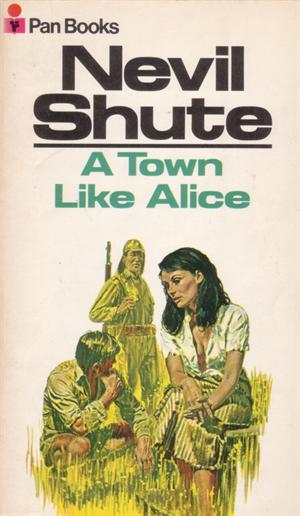 _
_ _
_
Nevil Shute (1899 - 1960)
Nevil Shute Norway was an English novelist and aeronautical engineer who spent his later years in Australia. He used his full name in his engineering career and Nevil Shute as his pen name to protect his engineering career from any potential negative publicity in connection with his novels.
At the age of 11, Norway played truant from his first preparatory school in Hammersmith, spending days among the model aircraft at the Science Museum examining wing control on the Bleriot and trying to puzzle out how the engine of the Antoinette ran without a carburettor.
On being detected in these precocious studies, he was sent to the Dragon School, Oxford, and thence to Shrewsbury. He was on holiday in Dublin, where his father was then Secretary to the Post Office in Ireland, at the time of the Easter rising of 1916 and acted as a stretcher-bearer, winning a commendation for gallant conduct.
He passed into the Royal Military Academy with the aim of being commissioned into the Royal Flying Corps, but a bad stammer led to his being failed at his final medical examination and returned to civil life. The last few months of the war (in which his brother had been killed) were spent on home service as a private in the Suffolk Regiment.
Writing under his Christian names, Nevil Shute, he had an unaffected popular touch which made him a best-seller throughout the Commonwealth and the United States. The secret of his success lay in the skill with which he combined loving familiarity with technicalities and a straightforward sense of human relationships and values. He conveyed to the readers his own zest for making and flying aircraft. The hazards and rewards of back-room boys have never been more sympathetically portrayed nor with closer inside knowledge. His natural gift for creating briskly moving plots did not extend to the delineation of character in anything more than conventional terms. He retained to the last the outlook of a decent, average public-school boy of his generation.
In 1948 Norway flew his own plane to Australia. Back home, he felt oppressed by British taxation and decided that he and his family would emigrate. With his wife and two daughters, he settled in 1950 on farmland at Langwarrin, south-east of Melbourne. His greatest successes dated from this time, and most of them had Australian settings: A Town Like Alice (1950), Round the Bend (1951), which Norway considered his most important work, The Far Country (1952) and In the Wet (1953). The last caused some controversy. Released in the coronation year, the novel is partly set in a future where the monarch seeks refuge in Australia from an unsympathetic British government. In 1954 he published Slide Rule which gave an account of his life to 1938. Requiem for a Wren (1955), Beyond the Black Stump (1956) and his most famous book, On the Beach (1957), were followed by The Rainbow and the Rose (1958), Trustee from the Toolroom (1960) and Stephen Morris (1961), the last two published posthumously. Several of his novels were made into films, the most notable being A Town Like Alice (1956), starring Peter Finch, and On the Beach (1959), produced by Stanley Kramer.
http://www.nevilshute.org/
7avatiakh
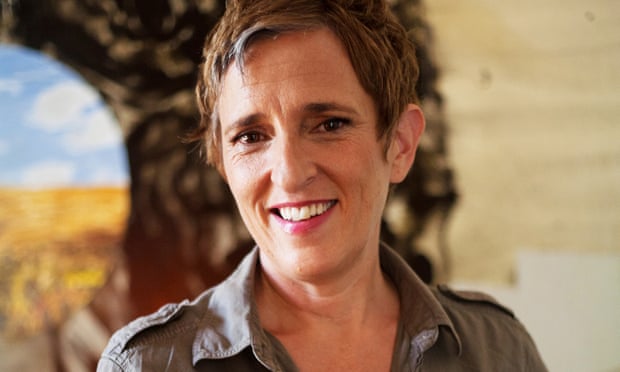 _
_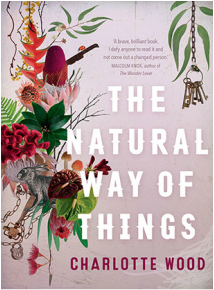 _
_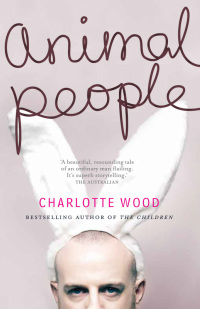 _
_
Charlotte Wood (1965 -)
Charlotte Wood is an Australian novelist, born in Cooma, New South Wales. The Australian newspaper has described Charlotte Wood as "one of our most original and provocative writers.” She is the author of five novels and two books of non-fiction. Her latest novel, The Natural Way of Things, won the 2016 Stella Prize, the 2016 Indie Book of the Year and Novel of the Year, and has been shortlisted for the 2016 Miles Franklin among other awards. Judges' comments...“The Natural Way of Things is a novel of – and for – our times, explosive yet written with artful, incisive coolness. It parodies, with steely seriousness, the state of being visible and female in contemporary Western society.
With an unflinching eye and audacious imagination, Charlotte Wood carries us from a nightmare of helplessness and despair to a fantasy of revenge and reckoning. The Natural Way of Things is a riveting and necessary act of critique.”
The Writer's Room: Conversations about Writing (2016), is a selection of interviews with established Australian authors from her time editing The Writer's Room Interviews e-magazine. Wood's online journal The Writer's Room has become essential reading for writers at all stages of their careers, and also pure reading pleasure for booklovers everywhere. Charlotte's interviews with a wide range of well-known writers range in topic from the subject matter of the writers' work to quite intricate - and intimate - revelations about the ways in which they work. Charlotte's subjects are frank about the failures and successes, the struggles and triumphs of the writing life, and extremely generous in their revelations
In 2016 Charlotte was named the Charles Perkins Centre's inaugural Writer in Residence at the University of Sydney. She has a PhD from the University of New South Wales; previous degrees are a Master of Creative Arts from UTS and a BA from Charles Sturt University.
http://www.charlottewood.com.au/
8PaulCranswick
Plenty of choices for November and December. I have been waiting for Maurice Gee all year and will read Crime Story. All three Aussies are an option but I will surely read something by Shute.
9avatiakh
Hi Paul - yes, lots of choice here. I've read a lot of Maurice Gee and Crime Story is a good choice, a fairly easy though creepy type of read and very evocative of Wellington.
I'm probably going to focus a little on David Hair as I have read two of his YA Aotearoa series and would like to get it done and dusted.
The two women writers have both written several good books but I haven't yet read anything by them....and I have an omnibus of Nevil Shute's works that needs to be cracked open.
I'm probably going to focus a little on David Hair as I have read two of his YA Aotearoa series and would like to get it done and dusted.
The two women writers have both written several good books but I haven't yet read anything by them....and I have an omnibus of Nevil Shute's works that needs to be cracked open.
10HelenBaker
Always a Maurice Gee on the shelf to read. I have The Plumb Trilogy and Soul Survivor as well as David Hair's The Bone Tiki. I have read many of Laurence Fearnley's. The Hut Builder was excellent. Likewise, I have read two of Charlotte Wood's books so my Aussie focus will be Nevil Shute as I have a set of 11 of his and try to read one each year.
11avatiakh
Hi Helen - I've read Plumb and keep meaning to finish the trilogy, not sure if I'll manage this time round. my track record is fairly poor at present.
12avatiakh

The Lost Tohunga by David Hair (2011)
YA
Aotearoa #3. This is another series that I should focus on as I enjoy each outing so much. It's sort of urban fantasy set in present day New Zealand but the characters have the ability to slip in and out of Aotearoa, a world from the past, where mythological creatures thrive in NZ's colonial times. Mat and his friends are caught up in another power struggle in the spirit world. I just love how Hair manages to blend all these characters and worlds together to produce an action packed read. The Kurangaituku (Bird Woman) was a particularly interesting character this time. I'm hoping to read the next three books and finish the series before the end of the year.
13HelenBaker
I am almost finished The Bone Tiki, Kerry and have been surprised at what an action packed ride it is. I hadn't realised it was the first part of a series. It should certainly capture the imagination of young people. It reminded me of the momentum of The Da Vinci Code, as I don't usually read this type of fiction.
14avatiakh
Helen, they are a lot of fun, there's 6 books I think. I love the blending of Maori mythology with colonial New Zealand. I really enjoyed the second book, can't resist a taniwha story.
Now need to concentrate on Clive James' book of essays.
Now need to concentrate on Clive James' book of essays.
15HelenBaker
I finished another of my Nevil Shute books last night. What Happened to the Corbetts. I love reading one of his novels each year. Such a sense of nostalgia for times past. I am rereading Plumb by Maurice Gee and hope to complete the trilogy Meg and Sole Survivor. He really is a brilliant writer, such strong characterisation.
16avatiakh
Oh you are doing well. I've still not opened my Clive James.
17avatiakh
Charlotte Wood has edited The Best Australian Stories 2016 which has just been published.
http://www.bestaustralianwriting.com.au/
http://www.bestaustralianwriting.com.au/
18avatiakh
...and James McNeish who we covered in our Jan/Feb thread has died this week.
http://www.stuff.co.nz/entertainment/books/86441863/wellington-writer-james-mcne...
http://www.scoop.co.nz/stories/PO1611/S00195/a-principled-man-with-a-mighty-pen-...
His latest book, Seelenbinder: the Olympian who defied Hitler, is reviewed here: http://www.nzherald.co.nz/entertainment/news/article.cfm?c_id=1501119&object...
http://www.stuff.co.nz/entertainment/books/86441863/wellington-writer-james-mcne...
http://www.scoop.co.nz/stories/PO1611/S00195/a-principled-man-with-a-mighty-pen-...
His latest book, Seelenbinder: the Olympian who defied Hitler, is reviewed here: http://www.nzherald.co.nz/entertainment/news/article.cfm?c_id=1501119&object...
20HelenBaker
I have completed the Plumb trilogy. I found it a fascinating overview of the 20th century in New Zealand and thought it clever how the perspective on people and events changed according to the narrator in each of the books.
This is the last for me in this challenge. It has certainly helped to reduce the TBR. I look forward to next years challenge.
This is the last for me in this challenge. It has certainly helped to reduce the TBR. I look forward to next years challenge.
21avatiakh
>20 HelenBaker: Congratulations on reading the whole trilogy, a real achievement.
I'm not getting anywhere as yet with my ANZAC reading as I'm trying to finish up library books and other books I've started through the year. I've been carrying Clive James around in my handbag, but he's not seen much light for all that.
I'll post up next year's ANZAC challenge as soon as the new group is created, I've decided to make it a flexible challenge so we can clear our shelves a little and will post some form of BINGO challenge. So suggest you peruse your shelves for any ANZAC books that you'd like to get read and hopefully...
I'm not getting anywhere as yet with my ANZAC reading as I'm trying to finish up library books and other books I've started through the year. I've been carrying Clive James around in my handbag, but he's not seen much light for all that.
I'll post up next year's ANZAC challenge as soon as the new group is created, I've decided to make it a flexible challenge so we can clear our shelves a little and will post some form of BINGO challenge. So suggest you peruse your shelves for any ANZAC books that you'd like to get read and hopefully...
22HelenBaker
I still have plenty of books for this challenge. 40 NZ titles on my bedside shelves unread never mind the Aussie books scattered through my other shelves. I will be interested to see what next years ANZAC challenge brings. This years has certainly encouraged me to pick up titles that would have gathered dust for a few more years. I am focusing on shorter lighter reads this month to try and get a little closer to my 75 challenge. This has been my slowest reading year for some time. I no longer get books out of the local library as I have way too many unread books at home.
23avatiakh
I finished Round the Bend by Nevil Shute a couple of days ago. Not going to be a favourite for me. I'm hoping to finish another by David Hair before the end of the year, Justice and Utu, Aotearoa #4.
Also finished another Garry Disher book, I've returned to his Inspector Challis series and read the third book, Snapshot. I know we did Disher back in May/Jun but I haven't finished with him.
I doubt I'll get anywhere with the Clive James book as I have a heap of library books needing my attention.
Also finished another Garry Disher book, I've returned to his Inspector Challis series and read the third book, Snapshot. I know we did Disher back in May/Jun but I haven't finished with him.
I doubt I'll get anywhere with the Clive James book as I have a heap of library books needing my attention.
24avatiakh
The 2017 ANZAC challenge is up: http://www.librarything.com/topic/244630

